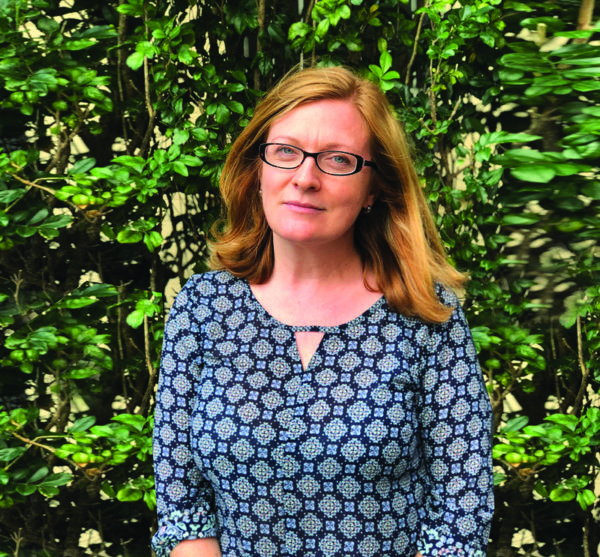Executive Director of ActionAid Australia, Michelle Higelin provides an overview of how the organisation endeavours to take an intersectional approach to gender equality and explains how women who live in poverty are often left behind when addressing climate change and health pandemics.
Why does ActionAid exist?

ActionAid is a global movement of people working to end poverty and injustice in 45 countries. Gender equality is at the heart of our mission because women and girls make up 70% of all people living in poverty. In the face of increasing climate and health related emergencies, we support women on the frontlines of crisis to campaign for a more just world. Those with the least resources to cope are the hardest hit by these emergencies so we are working towards a caring economy that puts people and planet first.
What role do you play at ActionAid and what gets you out of bed every day?
I am the Executive Director of ActionAid Australia and what gets me up in the morning is the continued plight facing women living in poverty around the world. Climate change, disasters and even health pandemics are deepening poverty and gender inequality worldwide – and women continue to be shut out of decision making at all levels, making up only a quarter of leadership positions globally. Despite this, women show incredible resilience and capacity to drive change, and I believe with targeted global action and resourcing, this situation is reversible.
What is the hardest area to obtain funding in and why is it important that this area is funded?
It is increasingly hard to attract funding for international causes as we start to feel the impacts of climate change and health pandemics closer to home. It’s turning us inwards. However, Australia is a wealthy nation by global standards and we can be generous at home and abroad. In many of the countries we work, women living in poverty are the hardest hit, with crises deepening gender inequalities, increasing the risk of violence and women’s burden of unpaid work. By supporting women leading crisis response we can ensure the most impacted communities are resourced to drive the response and build resilience over the longer term.
What impact has COVID-19 pandemic had on your organisations funding priorities?
COVID-19 is a global pandemic affecting every context we work in. We are concerned about the impact this twin health and financial crisis will have on some of the poorest nations globally. In Africa most countries already face a debt crisis with repayments on debt exceeding investments in health. Health systems could collapse if faced with widespread virus outbreak, meaning many people will die. The World Health Organization recommends countries have at least 44 doctors for every 10,000 people – in Uganda they have just 9 and in Tanzania they have 2. COVID-19 could be catastrophic in these countries and women living in poverty will be among the hardest hit. Crises like this deepen gender equalities, increasing the risk of violence and women’s unpaid work. ActionAid’s immediate priority is to support women on the frontlines of the crisis response. As the majority of the health workforce globally and primary carers in the home, women can play a critical role in preventing the spread of the virus.
During your time at ActionAid, can you share your fondest story of change and why is this story significant?

Five years ago we begun working in Vanuatu following Cyclone Pam. Our goal was to support women to have a voice in the disaster response in a country where women are frequently excluded from public life. In the space of two weeks, 8000 women flocked to women’s information tents as they heard there was finally a space for women to access information and share their concerns. Today this has morphed into the Women I Tok Tok Tugetha network with 4,800 women who are actively influencing government policy on climate change and disasters. Together these women have negotiated a waiver of school fees in times of crisis and established a communications platform to share early warning messages throughout their communities to help protect against cyclones and other disasters. In March, the women were able to distribute the first national public health message on COVID 19 via SMS to more than 70,000 people – a quarter of the population. And a record 17 women stood in the recent national elections, including three from our network. This shows that real change is possible.
As we close our borders against the threat of a global pandemic, let’s not close our hearts and minds. This is a moment for global solidarity in the fight against the coronavirus and an opportunity to demonstrate our common humanity.
This piece was originally published by Australian Executor Trustees.
Donate to our work to support local women’s leadership in prevention and response efforts worldwide!